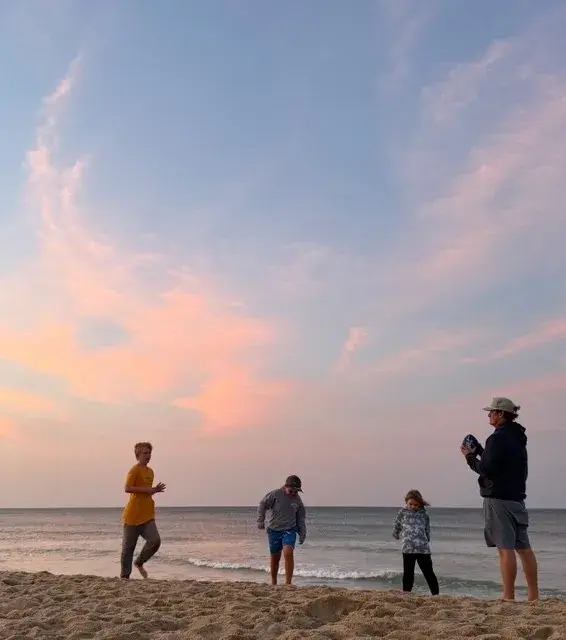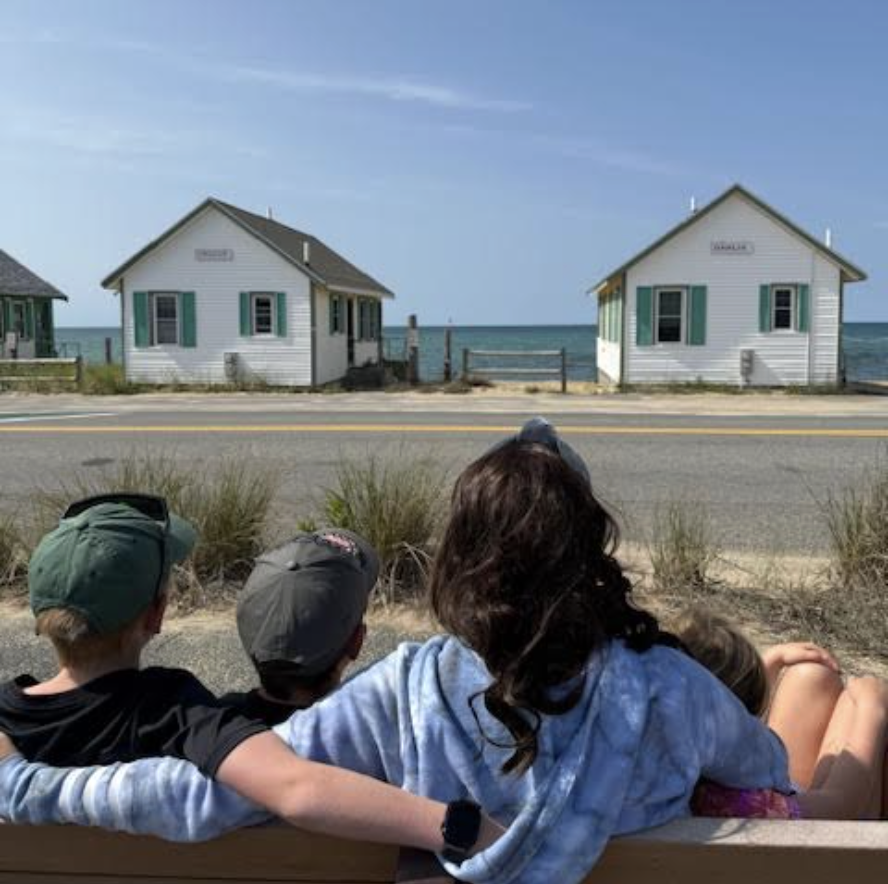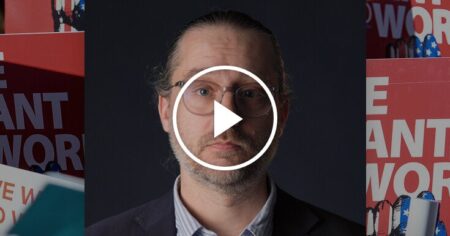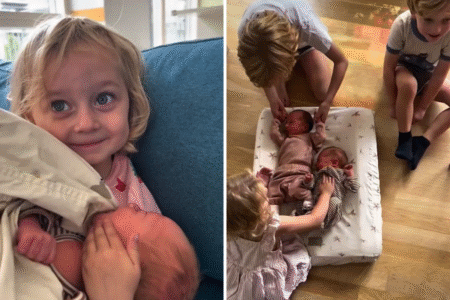Death whispered “I’m coming,” and then left me alone.
It retreated after becoming our worst fear, realized. My breast cancer was back, now as stage 4, now in my brain.
The initial prognosis: terrifyingly bleak. Weeks to live, months if I‚Äôm lucky. More scans to determine next steps. Aggressive treatment immediately.¬Ý
I felt like one of those malleable plastic characters on the Chutes and Ladders board. I had the fleeting weeks of summer to play, and fall’s arrival would determine my next move of continuing forward, or descending down the slide and off the board.
My immediate response to this news was to follow the stereotypical advice of every cheesy song about living like you‚Äôre dying. As the oldest girl in my extended family, wife to my childhood love, and mother to three young kids, I took the helm and feverishly scheduled all the things. A trip to Cape Cod, another to Quebec, weekends spent with family and friends and cooking everyone’s favorite meals. A trip to New York City for my middle son‚Äôs 9th birthday. It was the hottest day of the summer. While sitting on the sticky, steamy ferry floor to the Statue of Liberty, swallowing vomit, I looked at my husband and said, sarcastically but with a twinge of truth, ‚ÄúThis might just be where it all ends. Right here on a filthy ferry floor.‚Äù¬Ý
What they leave out of those songs, though, is the arduous job of living like you’re dying while you’re actually dying. This means while you’re living out your version of “rocky mountain climbing,” you’re doing so as you gradually start to feel like a pile of hot garbage. My frenetic adult Make-a-Wish-esque style of end-of-life memory fulfillment wasn’t winning. I had to accept that while I wasn’t really going to die this minute on the sweaty ferry, I was fading.
Then, new scans revealed improvement. We were climbing the ladder this time around, and proceeding with more time. Outstanding news, dampened by the awful reminder of the eventual and inevitable, which feels like swallowing a pile of nails each time you hear it. This is a terminal prognosis. There will be a future spin when we go down the slide.¬Ý

The transition to living like I was fading versus immediately dying wasn‚Äôt an easy one. By definition, to fade means to diminish, or disappear slowly, gradually losing brightness, color and intensity. Reading this was like holding up a mirror, finally accepting the reality of this process. Whereas imminent death brings finality, the fade is a gradual thief, replacing all things beautiful in life with anticipatory grief and change. Faking fortitude would only fuel false hope for my family, and more shrapnel for them when I do leave. So I don‚Äôt do that. My children bear witness to the fading. When I do hit the Chutes and Ladders slide, it will still stun and sting, but it won‚Äôt surprise. In that way, fading gives me the gift of preparation.¬Ý
As we accepted “the fade” into our new reality, the hardest part is adjusting to the mornings. Mornings were MY thing. Now I hear the muffled movement of my three kids getting ready for school with my husband. At first, my impulse was to spring from bed. Seconds later, wobbly and exhausted, my head was back on the pillow. I began to realize that my absence was helpful for the four of them downstairs to keep going.

Later, my husband would lovingly tell me ‚Äúthe kids did great!‚Äù getting ready for school, which was both a relief and dagger to my heart. Acknowledgment that the world kept turning as I gradually faded from it. Acceptance that they were all going to be OK without me at the morning helm. Life would keep moving.¬Ý
The worst but best feedback I received after my diagnosis is that all living things are eventually meant to live without their mother. As humans, our babies grow, and while they will remain the center of our universe, we as parents will not remain the center of theirs. Initially, that was a gut punch to hear. I reflect on my own mom, still alive at 73, whom I deeply love ‚Äî but the sun and moon do not revolve around her. She‚Äôs forever in my orbit, but my kids and husband are my universe, my entire world.¬Ý
There are moments I catch myself trying to memorize my kids‚Äô faces, and my husband‚Äôs. I stare at my beautiful blue-eyed 6-year-old¬Ýdaughter, my only girl, and admire the glow of her perfectly blond hair. My still baby-faced and amazingly funny 9-year-old son. My perfectly freckle-faced and strawberry blond, no-longer-little 11-year-old boy, my oldest. And my husband, whom I met as a child, whose gray hair I don‚Äôt see. In the memory I‚Äôm trying to implant into my brain, he is still 13, with a blond ‚Äô90s-style bowl cut, and we are preparing to take on the world.¬Ý
These people we created, and this love we’ve nurtured for most of our lives, don’t deserve to have their orbit disrupted. Yet, death’s warning whisper was the ultimate, unexpected gift. For some, the end of life is a sudden, painful disappearance. It is a privilege to have received the fair warning so I can fade.

And as I listen, most days with tears on my cheeks, to the new morning routine ‚Äî the backpacks zipping, the searches for sneakers, the bickering over dog poop pickup (because of course in my live-like-I‚Äôm-dying phase, getting a puppy was critical) ‚Äî I‚Äôm filled with an indescribable peace. I will fade from their orbit and become a memory, sooner than a mother should.¬Ý
They will be OK, many thanks to the gift of me not immediately disappearing, but instead, having the chance to fade away.
And their worlds will keep turning.¬Ý
Julie Devaney Hogan is a mother of three and tech executive from the Boston area. She was diagnosed with stage 3 HER2+ breast cancer in 2022 and serves on the board of the Know Your Lemons Foundation, advancing breast cancer awareness and education.
All views expressed in this article are the author’s own.
Do you have a personal essay you want to share with Newsweek? Send your story to MyTurn@newsweek.com.
Read the full article here














